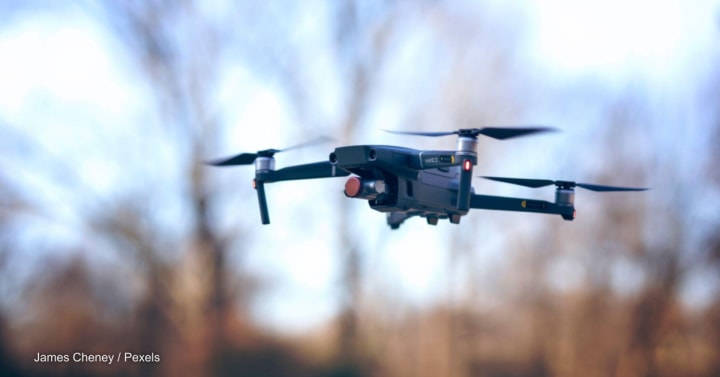
In his work as a physician based in the United Kingdom, Bilal Mateen has never treated a single case of dengue, Zika, or chikungunya, which disproportionately affect people in low-income countries.
The must-read weekly newsletter for exclusive global health news and insider insights.
But he expects that will change within a few decades as rising temperatures and changing weather patterns drive the spread of these climate-sensitive infectious diseases globally, often to regions that have not seen them in the past.
There will be a growing number of suitable environments for the Aedes mosquito — which transmits dengue, Zika, chikungunya, yellow fever, and other viruses — and it’s predicted that 1 billion people will be newly at risk of these diseases by the year 2080. As it stands, health systems worldwide are unprepared for this shift.
Last month, Wellcome, which supports health research and where Mateen is senior manager of digital technology in addition to his outside clinical work, announced a new funding call to catalyze climate-sensitive infectious disease research. According to Mateen, the U.K.-based foundation has set aside £10 million ($13.4 million) for the development of tools that will allow modeling for these diseases “to be done more accurately, efficiently, and with greater downstream impact,” by better integrating research into policy.
With this funding, Wellcome is working to ensure that early warning systems for climate-sensitive infectious diseases actually inform evidence-based public health decision making.
The call for proposals points to the role that technology can play in tackling climate infectious diseases and other health impacts of climate change.
Tackling an emerging threat
The initiative fits into Wellcome’s new strategy, announced in 2020, to support advances related to mental health, global heating, and infectious diseases.
As he explored the role digital technology could play, Mateen worked closely with Madeleine Thomson, head of climate impacts at Wellcome. Her 25 years of work on climate-sensitive health interventions in low- and middle-income countries include leading the World Health Organization’s work on early warning systems for malaria.
Mateen began to see the need for better data, methodologies, and tools to respond to the emerging threats of climate-sensitive infectious disease.
“We were looking for opportunities where my team, in particular, who thinks about digital technologies, software tools, and digital infrastructure could do something,” Mateen said at Prescription for Progress, Devex’s event on global health partnerships, last month. “I did the only sensible thing I could think of, which was to find a whole bunch of people much smarter than myself to help me figure out the solution space.”
Mateen commissioned a landscape mapping of software tools at the intersection of climate and infectious disease that could help public health practitioners and other decision-makers make climate-informed decisions. “The main take-home was there was an absolute dearth of tools that fit the bill,” he said.
The team identified 37 fully developed and named tools. Most focused on vector-borne diseases — pathogens carried by mosquitoes, ticks, or fleas — which is no surprise, given all that is known about changes in temperature and rainfall on vector disease transmission. But there were few tools for respiratory, foodborne, and waterborne diseases, and no tools for soilborne diseases, despite the impact that changing climate conditions will have on diseases ranging from influenza to cholera to salmonellosis.
Very few studies on climate-sensitive infectious disease progress to become tools that can support public health officials in reducing the burden of disease, Mateen said.
The tools that do exist are available primarily in countries or regions where these infectious diseases are endemic, not the places where they are likely to spread. Moving forward, Mateen said, he hopes to see these tools designed with end users’ experience in mind from the outset.
Making information meaningful for decision-makers
This call is the first in a series of funding opportunities from Wellcome’s Climate and Health and data for science and health teams, but the foundation is already funding some work on climate-sensitive infectious diseases.
For example, Wellcome is supporting a team including Rachel Lowe, who was part of the team that worked on Wellcome’s landscape mapping of software tools, in an effort to make climate-sensitive infectious disease information more meaningful for decision-makers.
She is working with researchers in Brazil and Peru to use drones to monitor changes in human behavior that might have implications for the spread of infectious diseases, such as water storage practices that create new breeding sites for mosquitoes.
The team is deploying drones and weather stations in potential hot spots they're interested in tracking, including small island developing states, rapidly urbanizing cities, and the Amazon rainforest.
Afterward, Lowe and her colleagues will then develop artificial intelligence algorithms to inform early warning systems and other decision-making frameworks based on insights from this remote sensing data.
“If you think about the potential of big data, machine learning, and artificial intelligence, all of that potential is being harnessed by tech companies.”
— Jan C. Semenza, head of the health determinants program, European Centre for Disease Prevention and Control"Collaboration with climate scientists and software engineers is important to make a difference in this space," said Lowe, professor at the Catalan Institution for Research and Advanced Studies, or ICREA, and global health resilience team lead at the Barcelona Supercomputing Center.
This is an example of the kind of project that Wellcome hopes to fund with its call for proposals.
Harnessing the potential of technology for health
Wellcome’s new funding call is open through the end of March. A panel of 12 experts will review the shortlist of applications and make recommendations on which to support.
One of those experts is Jan C. Semenza, head of the health determinants program at the European Centre for Disease Prevention and Control, where he’s built a team focused on the impact of climate change on infectious disease.
His work has included developing early warning systems to alert public health professionals when elevated water temperatures create the right environment for vibrio bacteria to thrive, increasing the risk of Vibrio vulnificus infection. This can occur when people eat seafood infected with the bacteria or enter water where the bacteria are present when they have an open wound.
“If you think about the potential of big data, machine learning, and artificial intelligence, all of that potential is being harnessed by tech companies,” Semenza said.
While companies have used big data to analyze consumption patterns, set up surveillance systems, or manipulate political opinions, which they monetize for profit, public health has not taken advantage of these tools, he said.
Semenza mentioned how Twitter data was used to help investigate the 2017 chikungunya outbreak in Italy as just one example of how the same data that tech giants use to make money can be leveraged to inform public health policy.
He said he hopes to see more professionals who have become disillusioned with the tech industry consider leveraging the technologies they have worked on, or develop new ones, in order to inform public health policy.
As Semenza reviews applications for Wellcome’s funding call, he’ll be looking for ways to ensure that communities are involved from the outset.
“If communities aren’t engaged in the process of developing these systems, they won’t be used,” he said.
No matter how sophisticated the early warning tools are, without buy-in from the community, they won’t yield public health benefits, Semenza said.





